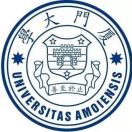Sensor
Sensors, actuators, and their applications
Multi-sensor information fusion technology
Physical, chemical, and biological sensors
Digital, frequency, period, bandwidth ratio, time interval, pulse width modulation, and pulse digital output sensor
Sensor theory, principle, effect design, and standardization
Sensor modeling
Intelligent sensors and systems
Sensor instrument
Virtual Instrument Sensor Interface
Bus signal processing
Network signal processing
Converter
Sensor technology and materials
Nanosensor
Microsystem






 Please send the full paper(word+pdf) to Submission System :
Please send the full paper(word+pdf) to Submission System :  Submitted paper will be peer reviewed by conference committees, and accepted papers after registration and presentation will be published in the Conference Proceedings, which will be submitted for indexing by Ei Compendex, Scopus.
Submitted paper will be peer reviewed by conference committees, and accepted papers after registration and presentation will be published in the Conference Proceedings, which will be submitted for indexing by Ei Compendex, Scopus.